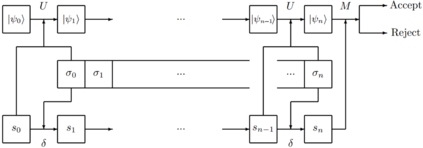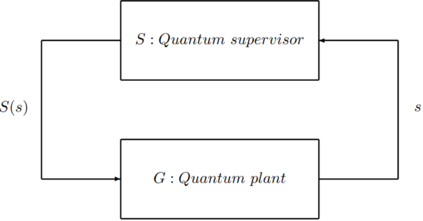Discrete event systems (DES) have been established and deeply developed in the framework of probabilistic and fuzzy computing models due to the necessity of practical applications in fuzzy and probabilistic systems. With the development of quantum computing and quantum control, a natural problem is to simulate DES by means of quantum computing models and to establish {\it quantum DES} (QDES). The motivation is twofold: on the one hand, QDES have potential applications when DES are simulated and processed by quantum computers, where quantum systems are employed to simulate the evolution of states driven by discrete events, and on the other hand, QDES may have essential advantages over DES concerning state complexity for imitating some practical problems. The goal of this paper is to establish a basic framework of QDES by using {\it quantum finite automata} (QFA) as the modelling formalisms, and the supervisory control theorems of QDES are established and proved. Then we present a polynomial-time algorithm to decide whether or not the controllability condition holds. In particular, we construct a number of new examples of QFA to illustrate the supervisory control of QDES and to verify the essential advantages of QDES over DES in state complexity.
翻译:分解事件系统(DES)是在概率和模糊的计算模型框架内建立和深入开发的,因为需要在模糊和概率系统中应用实际应用。随着量子计算和量子控制的发展,一个自然的问题是通过量子计算模型模拟DES,建立量子量子计算模型,建立DES(QDES),其动机有两个方面:一方面,当量子计算机模拟和处理DES时,QDES具有潜在的应用能力,使用量子系统模拟由离散事件驱动的国家的演变过程,另一方面,QDES可能比DES在模仿一些实际问题方面的国家复杂性具有重要优势。特别是,我们为QDES建立QDES基本框架,使用S(QFA)作为模式形式主义,并确立和证明QDES的监督控制标本。然后,我们提出一个多数值时间算法,以模拟受离散事件驱动的国家的演变情况,从而决定控制状态是否维持。我们为QDES(QDES)设计了一些新的监督性参数,以说明QDES(QDA)的复杂程度进行核查。














